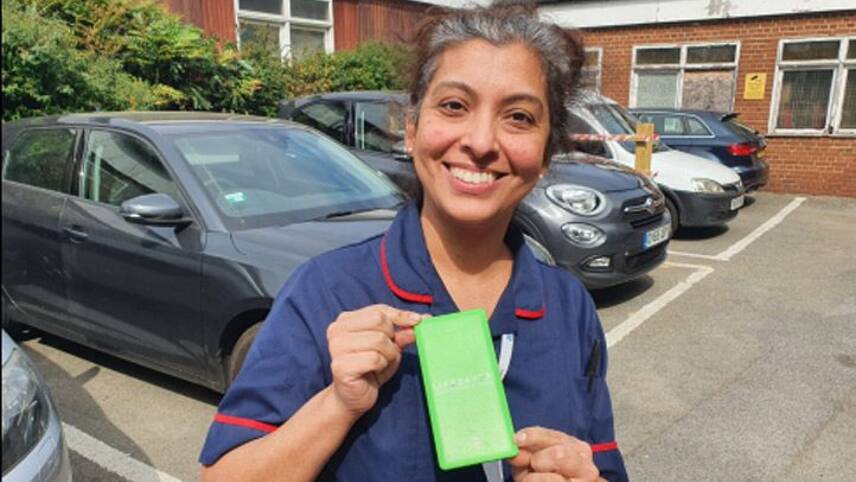Register for free and continue reading
Join our growing army of changemakers and get unlimited access to our premium content

A Lifesaver power bank has a capacity of 5000mAh
The Lifeline To The Frontline initiative has been set up by London-based B Corp Lifesaver with support from Nissan, Boodles, Octopus Energy for Business, Landbot, The Conduit & helpforce.
Lifesaver delivers phone power as a service and has linked up 860 pre-charged power banks with 100% renewable energy provided by Octopus Energy. The banks have been donated to the University Hospital Lewisham, Queen Elizabeth Hospital, and Chelsea & Westminster Hospital.
A Lifesaver power bank has a capacity of 5000mAh, which will charge most phone models on average size to two full charges.
Lifesaver’s chief executive Archie Wilkinson said: “People need power on the go. Frontline workers are under new pressures and need our support to stay powered & connected. We have launched Lifeline To The Frontline as a way to bring partners across the world to play a small part in helping these doctors and nurses stay connected with patients, family and loved ones.”
Low-carbon frontline
More than 11% of the NHS’s estate was set to be switched to 100% renewable electricity this spring, under new energy deals signed by its Property Services arm.
NHS Property Services (NHSPS) is responsible for more than 3,500 buildings, including hospitals, health centres and GP surgeries. These properties collectively total more than 34 million square feet.
Under new contracts signed through Inspired Energy, all of these properties will be switched to 100% renewable electricity in April. The contract will also see a shift to lower-carbon natural gas for heating. NHSPS claims the switch will reduce its annual direct (Scope 1) and power-related (Scope 2) carbon emissions by more than 40,000 tonnes.
In addition to the new energy contracts, NHSPS is investing in an estate-wide roll-out of energy-efficient LED lighting. £1.5m has been set aside for investment in LEDs across the 2019-2020 financial year.
Given that the NHS accounts for between 4 and 5% of the UK’s total carbon footprint on an annual basis, its decarbonisation will be crucial to the UK’s ability to meet its 2050 net-zero target.
Last September, NHS England’s chief executive Simon Stevens said the organisation would develop a framework of co-ordinated measures to reduce its carbon footprint within a year. He also said NHS England would develop resources to help staff discuss the potential health impacts of climate change and other environmental issues, such as air pollution.
Commenting on the power bank donations, Zoisa Walton, chief executive of Octopus Energy for Business, added: “We are incredibly proud to be supporting this initiative from Lifeline to the Frontline and to be supplying the power banks that are distributed amongst NHS staff. Keeping devices charged keeps people connected.
“NHS staff can use devices to access their own support networks and patients can speak to loved ones in their time of need. Powering these devices with 100% renewable energy is beneficial for the planet and the people most affected by this virus.”
Matt Mace


Please login or Register to leave a comment.